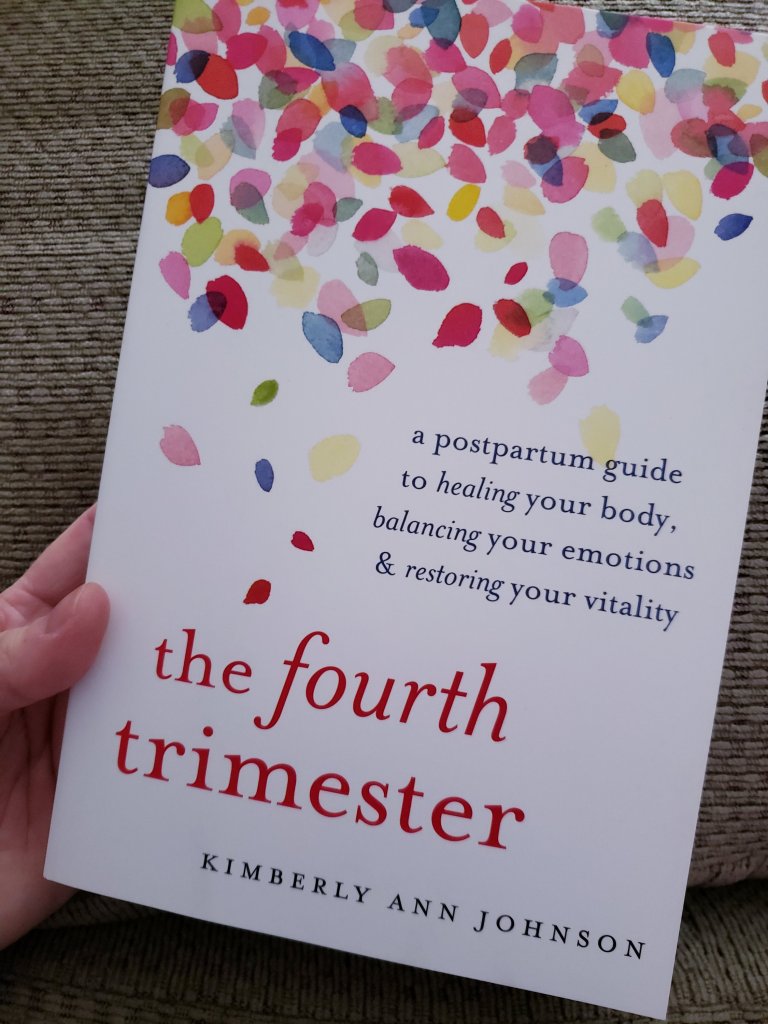Well, I made it to what they consider “full term”: 37 weeks. My short cervix has kept the not-so-little-anymore bean inside!
Now, as my OB described, I’m on cruise control.
Just you wait and see, after all this, she’ll come late!
Whenever she does choose to make her arrival, I’m ready. Nursery is done, clothes are washed. All that’s missing is the baby.
So I’m getting myself ready to enter the often forgotten, or never even heard of, fourth trimester.
During pregnancy, we’re bombarded with advice and rules and stipulations for a healthy pregnancy. No sushi, no deli meats. Don’t sleep on your back. Cut your caffeine. No bungee jumping.
Okay, I made up that last one, but you get the idea.
Then, baby arrives. And all that attention that was placed upon the mother – the vessel – is now placed on the new baby, and mom is too often forgotten.
It’s getting better. We’re talking more about postpartum realities now than we were even five years ago. More and more mothers are sharing the not always pretty truth of the fourth trimester.
For instance, not all moms love their baby as soon as it’s placed on their chest. Gasp!
Some moms have an immediate emotional connection; some don’t. There is no right or wrong, and it’s time those moms who need more time to fall in love with their babies feel normal. It doesn’t make them bad mothers, or mean that there’s something wrong with them.
Personally, I’ve felt very little (read: none) emotional connection to the baby girl who has been a tenant in my body for the past 37 weeks. I don’t sing to her; I don’t even talk to her – except when I tell her to get her damn foot out of my ribcage.
And I’m okay with that. That’s been my experience. It doesn’t mean there’s something broken inside me.
Right? Kidding.
Postpartum, women’s bodies are a war zone; can’t wait for that part! Our organs have spent 9 months shifting and morphing to build a flippin’ human being.
During pregnancy, the uterus grows to 500 times its size. After birth, it returns to its pre-pregnancy size in a matter of approximately 6 weeks. That’s one tough organ.

In addition to the incomparable uterus, the following organs and systems are affected by pregnancy: the cardiovascular system, kidneys, respiratory system, gastrointestinal system, skin, hormones, liver, metabolism.
Knowing all this, it should be much clearer to see why women need time to recover from childbirth – and not just physically.
Hormones basically drive the car that is the body, and postpartum, they’re all over the map. Bringing them back in balance doesn’t always happen overnight.
The delivery of the placenta causes an almost immediate trigger to dramatically drop progesterone levels, and prolactin levels kick into high gear. Estrogen levels also drop drastically, and oxytocin ramps up.
These hormones go from their highest levels to their lowest in a matter of hours. Add that to a mix of sleep deprivation, bruised and/or torn lady parts, hemorrhoids, a leaky bladder, cracked or sore nipples, and a requirement for the thickest of thick maxi pads, and you’ve got a recipe for anything but the bliss women are taught that they are supposed to feel.
As someone with a history of anxiety and depression, I’m very aware of my risk for postpartum mental health issues, which includes more than just PPD (postpartum depression). There’s also postpartum anxiety, OCD, and psychosis.
(Little know fact: new dads can also experience any of these mental illnesses also.)
So, I’m readying myself as much as I can for the days and weeks following my daughter’s (that still sounds strange!) arrival.
I believe that half of that prep starts with the awareness that it may not be full of intoxicating euphoria, angels singing, unicorns and rainbows. Pregnancy and birth are many things, but I doubt most women would describe them as glamorous and rapturous.
That doesn’t make it any less miraculous, or life changing. It’s still one hell of a miracle.
It’s just not always wrapped in a beautiful bow. And it’s time we recognize, acknowledge, and normalize that, too.
Here’s hoping.

